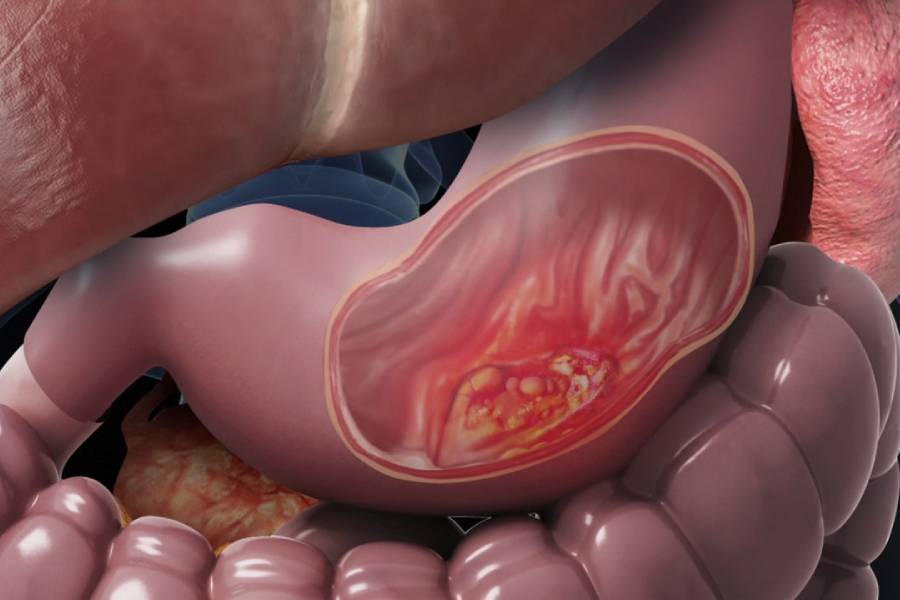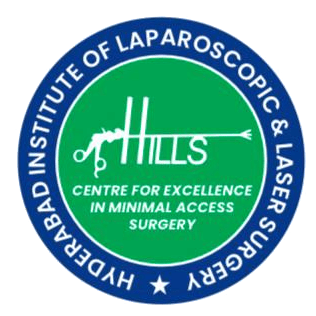What is stomach cancer (gastric cancer)?
Stomach cancer is also called gastric cancer. Cancer can form anywhere in your stomach. Most cases of stomach cancer involve abnormal cell growth in the place where your stomach meets your esophagus. Or, where gastric cancer is more common, cancer usually forms in the main part of your stomach.
About 95% of the time, stomach cancer starts in your stomach lining and progresses slowly. Untreated, it can form a mass and grow deeper into your stomach walls. The tumor may extend to nearby organs like your liver and pancreas.
Who does stomach cancer affect?
Anyone can conceive of stomach cancer, but certain demographic factors may increase your risk. You’re more likely to get stomach cancer if:
- You’re 65 or over.
- You were assigned male at birth.
- Your ethnic background is East Asian, South or Central American, or Eastern European.

Signs and symptoms of stomach cancer:
Symptoms of stomach cancer include:
- Loss of appetite.
- Trouble swallowing.
- Fatigue or weakness.
- Nausea and vomiting.
- Unexplained weight loss.
- Heartburn and indigestion.
- Black stool (poop) or vomiting blood.
- Feeling bloated or gassy after eating.
- Stomach pain, often above your belly button.
- Feeling full even after eating a small meal or snack.
Causes Stomach Cancer:
Certain factors seem to increase the likelihood of developing stomach cancer. They include:
- Family history of stomach cancer.
- Helicobacter pylori (H. pylori) infection.
- Gastroesophageal reflux disease (GERD).
- Gastritis.
- Epstein-Barr virus infection.
- History of stomach ulcers or stomach polyps.
- A diet high in fatty, salty, smoked, or pickled foods.
- A diet that doesn’t include many fruits and vegetables.
- Frequent exposure to substances like coal, metal, and rubber.
- Smoking, vaping, or chewing tobacco.
- Drinking too much alcohol.
- Obesity.
- Autoimmune atrophic gastritis.
Diagnosis of Stomach Cancer:
- Upper endoscopy is generally used to diagnose stomach cancer. During the procedure, the surgeon inserts a thin tube with a tiny camera at its tip (endoscope) into your mouth until it reaches your stomach. Small surgical instruments can pass through the endoscope, allowing your provider to remove a tissue sample (biopsy). The sample can be tested in a lab for cancer cells.
- Endoscopic ultrasound is a special kind of endoscopy that can help stage cancer. The endoscope used has an ultrasound probe attached at its tip, that can take pictures of your stomach. It can show if the cancer’s spread from your stomach lining to your stomach wall.
- Radiologic tests, including a CT scan, barium swallow, and MRI, can help identify tumors and other abnormalities that may be cancer-related. During a barium swallow, you drink a substance that makes your stomach lining more visible on an X-ray. A PET scan can show if cancer has spread throughout your body.
- Blood tests can offer information about how your organs are functioning. Poor organ function may indicate that cancer has spread to that organ.
- Laparoscopy is a type of surgery that allows your provider to assess cancer spread when less invasive methods, like imaging, haven’t provided enough information. During laparoscopy, your provider inserts a tiny camera into small cuts in your abdomen so they can see your organs directly.
Treatments for Stomach Cancer:
- Surgery: Depending on how much cancer’s spread, your provider may recommend surgery to remove precancerous cells, a tumor, or all or part of your stomach.
- Upper endoscopy: In the early stages, when the cancer is limited to your stomach’s superficial (uppermost) layers, cancer can be removed through an upper endoscopy. In this procedure (endoscopic submucosal dissection or endoscopic mucosal resection), a gastroenterologist cuts the tumor from your stomach wall and removes it through your mouth.
- Gastrectomy. Once the tumor spreads beyond your stomach’s superficial layers, you’ll need surgery to remove all or part of your stomach. Subtotal gastrectomy removes the part of your stomach affected by cancer. Total gastrectomy removes your entire stomach. Your provider will connect your esophagus to your small intestine so that you can still eat following total gastrectomy.
- Chemotherapy (chemo) uses drugs to shrink cancer cells, making them easier to remove before surgery. Chemotherapy can also kill the remaining cancer cells after surgery. It’s usually used in combination with radiation. Chemo may be used with targeted drug therapy, too.
- Radiation uses targeted energy beams like X-rays to destroy cancer cells. Radiation alone isn’t effective in treating stomach cancer, but it may be used alongside chemo before and after surgery. Radiation can also help relieve symptoms.
- Targeted drug therapy zeroes in on weaknesses in cancer cells, causing them to die. It’s often used with chemo in cancer that recurs (comes back) or that’s advanced.
- Immunotherapy helps your immune system identify and destroy cancer cells that may be hard to detect. It’s most commonly used in recurring or advanced cancer.
- Palliative care helps improve your quality of life as someone with a cancer diagnosis. Palliative care is specialized medical care that may include doctors, nurses, and other specialists who can help with symptom relief. They can also provide additional support that complements the care you receive from your regular providers. You can receive palliative care alongside other treatments.
Talk To Dr. N. S. Babu:
Dr. N. S. Babu and their team has a dedicated and caring approach and will seek to find you the earliest appointment possible with one of the best GI surgeon (Stomach Cancer) in Hyderabad – Dr. N. S. Babu for your needs. For more information about our comprehensive treatment options, or to request an appointment with the best gastro care clinic in Hyderabad. Call us on 9443355668.
